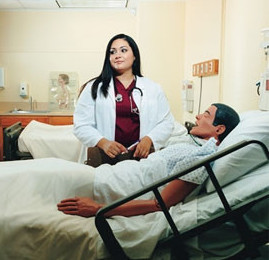
As I mentioned in my previous post, I have been working in Texas doing home risk assessments. Health insurances want these assessments done on their patients yearly, to identify gaps in their health care. Examples of these gaps include: poor medication compliance, home safety issues/increased risk of falls, and the need for specialty referrals.
Home assessments have their advantages but is isn’t for everyone. Here are some pros and cons for doing home risk assessments:
Pros:
-Flexibility: Your schedule can be what you make it. You can work weekends or 4 days of 10-hour shifts. You can even finish your shift early if you stay on task and go home hours early.
-Easy: the job itself is pretty easy as you are just asking a thorough history and screening questions, along with performing a physical exam. No treatment or prescribing needed. This job is pretty much stress free.
-Patients are happy: The patients are nice and welcoming. They usually are just grateful having someone to talk to and love that you are there.
-Mileage: You are getting paid to drive to the patients homes via mileage reimbursement. The scheduler will usually keep the distances short, and you can include mileage to and from your hotel. I usually profit $100 each week after gas expenses.
Cons:
-Atypical environment: Obviously you are working in other people’s homes. Unfortunately, not everyone is sanitary. Some bad experiences were being in a small apartment with a dozen cats and cat poop everywhere; feeling like you are in an episode of hoarders; smelling like smoke after you leave…
-Documentation: The assessment paperwork is extensive. Sometimes if the patient is a chatterbox or really sick, then you may have to bring paperwork home, and this can easily take an extra couple of hours of your time (unpaid).
-Equipment: You have to lug around an equipment bag to each visit. Inside is a laptop that requires about 5-10 min of setting up (extensive log-in process). You are also given a mobile wifi device. Many times the wifi device does not work (many patients do not have internet) so you will have to do all of the charting at home.
-Weather: Rain or shine you still have to do these home assessments. One day it was windy and raining tremendously. I got soaked arriving to a patient’s door, and they ended up not even being home!
My first day I knew home assessments wasn’t for me. The more days I worked though the more comfortable I became. Honestly, the patients were so kind that mostly stuck around for them. You can see I had more cons than pros.
Another aspect I want to mention is that you are paid per assessment, not hourly. So if you go to a patients house and they are not home, you will not get paid for the completed assessment. Instead you are paid for a “no show” which is a little less than half of what you would have been paid for a completed assessment. If a patient cancels prior to their appointment, this means no pay. If you are very financially dependent on this job, I wouldn’t recommend home assessments. Also, you have to make sure to finish the documentation thoroughly, if not the company will keep sending it back to you until all items are addressed.
If you are looking for something flexible and easy, home assessments may be for you. I personally think I am better suited for the clinic where I feel that my work is more impactful. With that being said, I may possibly me open to home assessments again in the future for a brief stint.
Like this:
Like Loading...





















